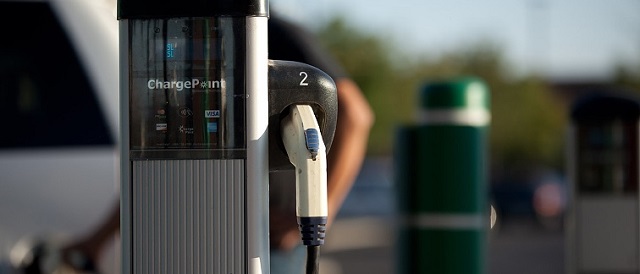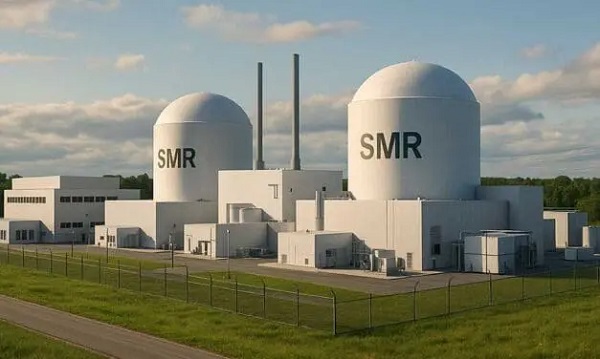International
Chinese-Owned EV Company Showered Dems With Campaign Contributions

 From the Daily Caller News Foundation
From the Daily Caller News Foundation
By NICK POPE
The U.S. subsidiary of a Chinese electric vehicle (EV) manufacturer and its top executive have given hundreds of thousands of dollars in campaign cash to Democrats in recent years.
Stella Li, a top executive for BYD Americas, and the company itself have given tens of thousands of dollars in campaign cash to Democratic candidates and organizations in California and beyond over the past decade, according to a Daily Caller News Foundation review of federal and state political spending records. Based in China, BYD is the biggest EV producer in the world, and Congress moved in January to ban the Pentagon from buying its batteries due to security risks, according to Bloomberg News.
For example, BYD and Li gave more than $40,000 to the Democratic National Committee (DNC) between 2020 and 2023, according to the DCNF’s review of political spending records. The company and Li have also poured more than $30,000 into organizations boosting President Joe Biden’s 2024 reelection effort to date.
Newsom test drives an EV hybrid made by a Chinese company he once gave a no-bid contract to https://t.co/97IdXPNkWs
— Daily Caller (@DailyCaller) October 25, 2023
Democratic California Gov. Gavin Newsom received about $60,000 from Li and BYD USA between 2018 and 2023. Newsom drew scrutiny for his administration’s decision to give BYD a $1 billion no-bid contract to supply protective equipment during the coronavirus pandemic despite the company’s core competency being in a different business, and Newsom subsequently took a BYD vehicle for a publicized test drive during a 2023 trip to mainland China.
Former Los Angeles Mayor Antonio Villaraigosa received more than $10,000 from Li to help his failed 2018 gubernatorial campaign, while the California Democratic Party received approximately $19,000 from Li and BYD USA between 2018 and 2020, according to the DCNF’s review of political spending records.
Michael Anotovich, former Chair of the Los Angeles County Board of Supervisors and an architect of California’s bullet train project, received more than $11,000 from BYD USA and its executives in 2015 and 2016 to help his political career, according to the DCNF’s review of political spending records. Anotovich often governed in ways that benefited BYD, such as when he, along with Villaraigosa, steered millions of dollars from a Los Angeles municipal clean bus testing program toward BYD, the Los Angeles Times reported in 2018.
Additionally, BYD USA forked over $25,000 to a 501(c)(4) organization called California For Safe, Reliable Infrastructure in 2018, according to the DCNF’s review of state records. Californians For Safe, Reliable Infrastructure was an organization that opposed the failed Proposition 6 in 2018, which would have repealed a 12 cent per-gallon tax on gasoline passed the prior year and required voter approval for future tax or fee increases on gasoline.
Ed Chau — formerly a member of the California State Assembly — raked in $7,000 from BYD USA and executives to boost his ambitions in 2018 and 2020, according to the DCNF’s political spending records review. Notably, Chau nominated Li for a “woman of the year” prize in his district in 2018.
Buttigieg says you don’t have to worry about gas prices if you buy an electric vehicle…someone should remind him how out of touch he sounds pic.twitter.com/tiJVkl7wB3
— Daily Caller (@DailyCaller) March 7, 2022
Meanwhile, BYD USA and Li gave Los Angeles City Councilman Kevin de Leon more than $19,000 in 2017 and 2018, according to the DCNF’s review. Notably, then- President pro Tempore of the California Senate de Leon said that “California and the rest of the nation needs more companies like BYD that take opportunities presented by policy and turn it in to job creation” regarding the 2017 ribbon cutting ceremony for BYD USA’s expansion of its Lancaster, California manufacturing facility.
BYD is one of the biggest EV manufacturers in the world, though its Americas subsidiary focuses specifically on electric trucks, forklifts, and buses, according to its website. The company is reportedly examining options for penetrating the U.S. EV market by way of Mexico, and the Environmental Protection Agency’s (EPA) recently-finalized tailpipe emissions standards for heavy-duty vehicles may end up benefiting BYD USA in the long-term, according to analysis by HEATMAP, a climate-focused publication.
The company has expanded its presence around the world in recent years under the “impetus” of China’s Belt and Road Initiative (BRI), according to a 2018 paper published in Advances in Economics, Business and Management Research. The BRI is a $1 trillion Chinese government effort to build infrastructure projects and accrue economic influence in other countries that is “widely recognized as an economic power play that could challenge U.S. influence geopolitically,” according to the Jamestown Foundation.
Additionally, BYD is touted in several articles posted to an official Chinese government website called “Belt and Road Portal.”
Moreover, Congress has specifically flagged the company in two separate National Defense Authorization Acts (NDAA). The 2020 NDAA contained a provision that banned public funds going to boost China-linked transportation companies like and including BYD, according to The Washington Post, and the NDAA that passed in December 2023 prohibits the Pentagon from buying batteries made by BYD and five other Chinese companies starting in 2027, according to Bloomberg.
The offices of Newsom, Ma, de Leon, BYD USA, the DNC, the California Democratic Party, ActBlue, and the Biden campaign did not respond to requests for comment. Anotovich could not be reached for comment, and Villaraigosa’s current employer did not respond to a request for comment on his behalf, nor did the Superior Court of Los Angeles County, on which Chau now sits.
Artificial Intelligence
UK Police Pilot AI System to Track “Suspicious” Driver Journeys
AI-driven surveillance is shifting from spotting suspects to mapping ordinary life, turning everyday travel into a stream of behavioral data
|
|
Business
Judge Declares Mistrial in Landmark New York PRC Foreign-Agent Case

U.S. District Judge Brian Cogan declared a mistrial Monday afternoon in the high-profile foreign-agent and corruption case against former New York state official Linda Sun and her husband Chris Hu, after jurors reported they were hopelessly deadlocked on all 19 counts.
After restarting deliberations Monday morning with an alternate juror, the panel sent a note to Judge Cogan stating:
“Your honor, after extensive deliberations and redeliberations the jury remains unable to reach a unanimous verdict. The jurors’ positions are firmly held.”
Cogan brought the jury into court and asked the foreman whether they had reached agreement on any counts. They replied that they were deadlocked on every one. The judge then declared a mistrial.
Assistant U.S. Attorney Alexander Solomon immediately told the court that the government intends to retry the case “as soon as possible.” A status conference is scheduled for January 26, 2026, to determine next steps.
Jury selection began November 10, 2025, and the government called 41 witnesses to the stand, compared with eight for the defense and one rebuttal witness for the prosecution. Deliberations began on December 12, and by this afternoon the jurors had sent three notes to the court — each indicating deadlock.
As The Bureau reported in its exclusive analysis Friday, the panel’s fracture had become visible as jurors headed into a second week of deliberations in a landmark foreign-agent and corruption trial that reached into two governors’ offices — a case asking a jury of New Yorkers to decide whether Sun secretly served Beijing’s interests while she and Hu built a small business and luxury-property empire during the pandemic, cashing in on emergency procurement as other Americans were locked down.
Prosecutors urged jurors to accept their account of a dense web of family and Chinese-community financial transactions through which Sun and Hu allegedly secured many millions of dollars in business deals tied to “United Front” proxies aligned with Beijing. The defense, by contrast, argued that Sun and Hu were simply successful through legitimate, culturally familiar transactions, not any covert scheme directed by a foreign state.
Sun and Hu face 19 charges in total, including allegations that Sun acted as an unregistered foreign agent for the People’s Republic of China; visa-fraud and alien-smuggling counts tied to a 2019 Henan provincial delegation; a multimillion-dollar pandemic PPE kickback scheme; bank-fraud and identity-misuse allegations; and multiple money-laundering and tax-evasion counts.
Prosecutors have argued that the clearest money trail ran through New York’s COVID procurement scramble and a pair of Jiangsu-linked emails. In closing, Solomon told jurors that Sun’s “reward” for steering contracts was “millions of dollars in kickbacks or bribes,” contending the money was routed through accounts opened in Sun’s mother’s name and via friends and relatives.
The government has tied those claims to a broader narrative — laid out in Solomon’s summation and dissected in The Bureau’s reporting — that Sun functioned as a “trusted insider” who repurposed state access and letterhead to advance Beijing’s priorities, including by allegedly forging Governor Kathy Hochul’s signature on invitation letters used for Chinese provincial delegations, while keeping those relationships hidden from colleagues. The defense, in turn, urged jurors to reject the government’s picture of clandestine agency and argued prosecutors had overreached by treating ordinary diaspora networking, trade promotion, and pandemic procurement as criminal conduct — insisting none of the evidence proved the “direction or control” element central to the Foreign Agents Registration Act.
Whether a future jury will see the same evidence as corruption and covert foreign agency or as culturally familiar commerce and politics — will now be tested again, on a new timetable, in a courtroom that has already shown just how difficult this record is to unanimously interpret.
The Bureau is a reader-supported publication.
To receive new posts and support my work, consider becoming a free or paid subscriber.
-

 Uncategorized1 day ago
Uncategorized1 day agoMortgaging Canada’s energy future — the hidden costs of the Carney-Smith pipeline deal
-

 Business2 days ago
Business2 days agoThere’s No Bias at CBC News, You Say? Well, OK…
-

 International1 day ago
International1 day agoAustralian PM booed at Bondi vigil as crowd screams “shame!”
-

 Opinion2 days ago
Opinion2 days agoReligion on trial: what could happen if Canada passes its new hate speech legislation
-

 Automotive21 hours ago
Automotive21 hours agoCanada’s EV gamble is starting to backfire
-

 Agriculture18 hours ago
Agriculture18 hours agoEnd Supply Management—For the Sake of Canadian Consumers
-

 Alberta17 hours ago
Alberta17 hours agoAlberta Next Panel calls to reform how Canada works
-

 Environment15 hours ago
Environment15 hours agoCanada’s river water quality strong overall although some localized issues persist












